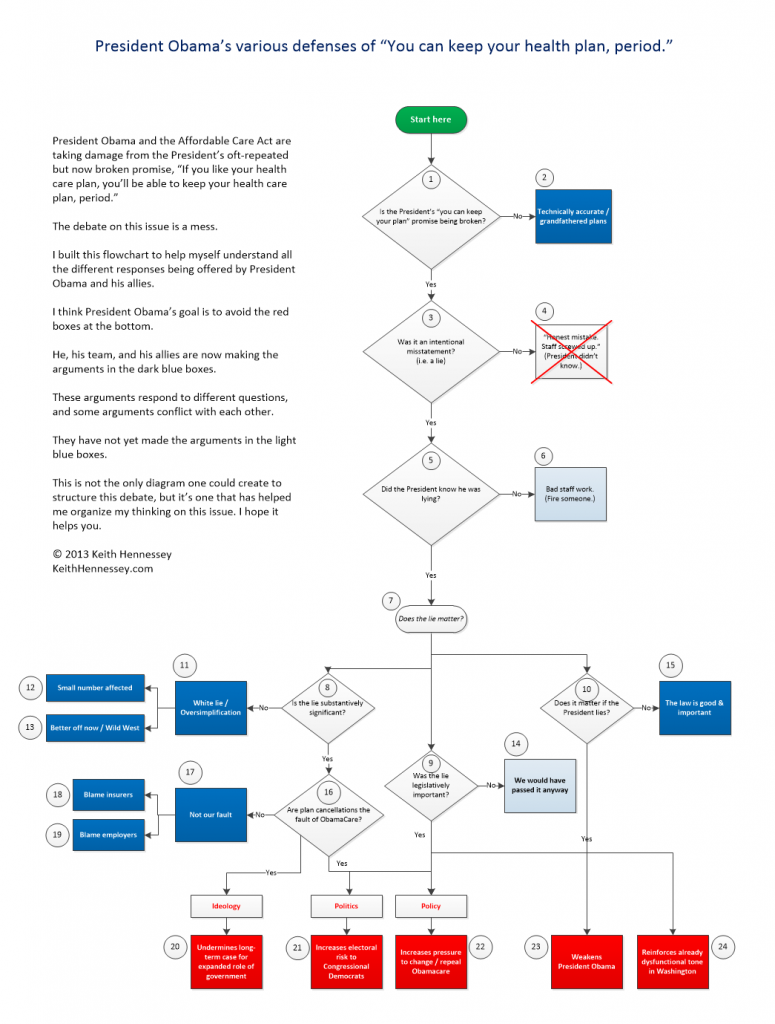Obamacare debuted on October 1. It is now November 4 and the mess is worse. I have been posting about it, here, and here, and here, and even here.
The political left is trying very hard as can be seen here.
It’s kind of complicated so I will summarize. You are screwed !
There are accusations that insurance companies are using this to drop high risk subscribers. Maybe that is true but it is the consequence of ignorant people designing Obamacare. Did these guys ever set up a new business ? As Casey Stengel once said to the Mets , “”Can’t anybody here play this game?”
I guess not.
The New York Times has done what it can.
We are also told that “in all the furor, people forget how terrible many of the soon-to-be-abandoned policies were. Some had deductibles as high as $10,000 or $25,000 and required large co-pays after that, and some didn’t cover hospital care.” Never mind that we have seen cancellations of insurance policies with deductibles much lower, and customers forced to purchase replacement policies with higher deductibles, and with premium increases of 100%, if not higher.
Then there is this argument.
Why can’t people opt out of mental health coverage if there is not a reasonable chance that they will need that coverage? Why can’t they get mental health coverage when it is needed? After all, pre-existing conditions can no longer be denied, so in the event that mental health coverage is needed down the line, it can be obtained and the insurance companies cannot deny people who already have pre-existing mental health conditions. The Times assures us that over-coverageand the high premiums that come with itis “one price of moving toward universal coverage with comprehensive benefits.” They don’t explain why having unnecessary coverage is a step towards social justice, but as we saw from the beginning of this intelligence-insulting, repulsively dishonest op-ed, the New York Times is less about explaining, and more about covering up a disastrous rollout with disastrous policy consequences for the country.
Peggy Noonan, who has frustrated me with her obtuseness at times, gets it now.
Politically where are we right now, at this moment?
We have a huge piece of U.S. economic and social change that debuted a month ago as a program. The program dealt with something personal, even intimate: your health, the care of your body, the medicines you choose to take or procedures you get. It was hugely controversial from day one. It took all the political oxygen from the room. It failed to garner even one vote from the opposition when it was passed. It gave rise to a significant opposition movement, the town hall uprisings, which later produced the tea party. It caused unrest. In fact, it seemed not to answer a problem but cause it. I called ObamaCare, at the time of its passage, a catastrophic victory—one won at too great cost, with too much political bloodshed, and at the end what would you get? Barren terrain. A thing not worth fighting for.
So the program debuts and it’s a resounding, famous, fantastical flop. The first weeks of the news coverage are about how the websites don’t work, can you believe we paid for this, do you believe they had more than three years and produced this public joke of a program, this embarrassment?
She assumed that it wasn’t worth it if it worked !
The problem now is not the delivery system of the program, it’s the program itself. Not the computer screen but what’s inside the program. This is something you can’t get the IT guy in to fix.
They said if you liked your insurance you could keep your insurance—but that’s not true. It was never true! They said if you liked your doctor you could keep your doctor—but that’s not true. It was never true! They said they would cover everyone who needed it, and instead people who had coverage are losing it—millions of them! They said they would make insurance less expensive—but it’s more expensive! Premium shock, deductible shock. They said don’t worry, your health information will be secure, but instead the whole setup looks like a hacker’s holiday. Bad guys are apparently already going for your private information.
This is the worst that could be imagined.
